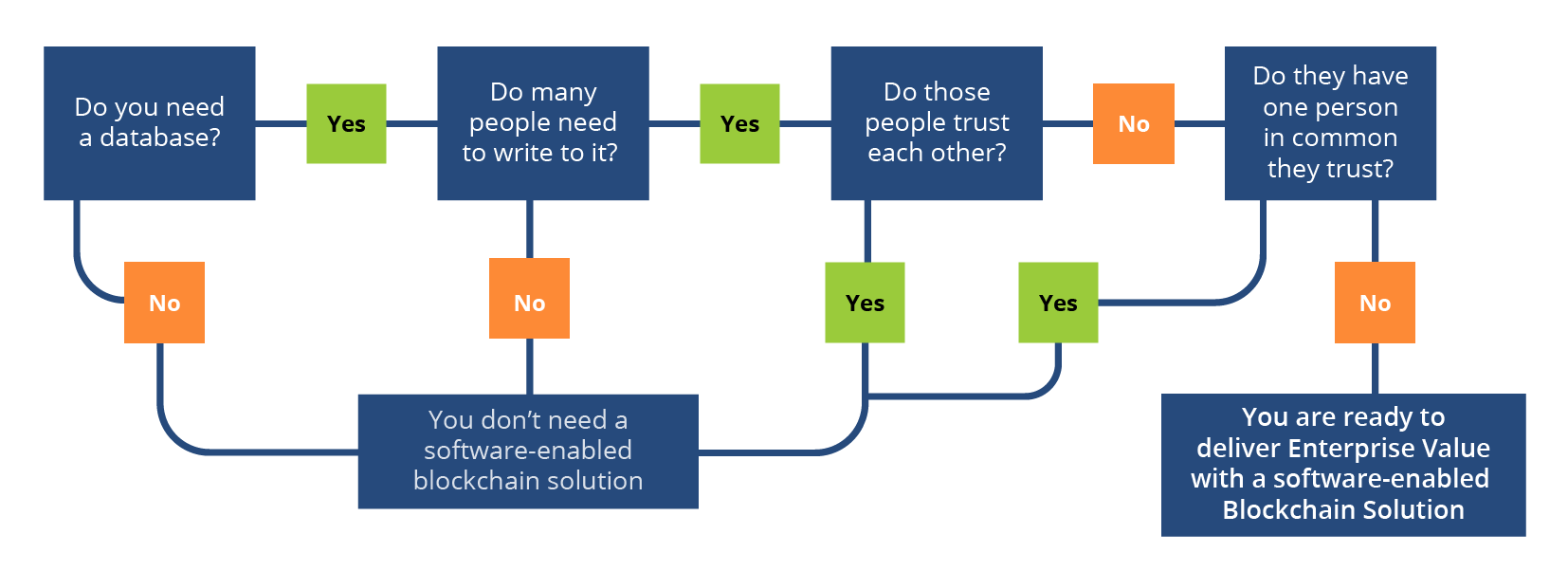Blockchain is a revolutionary technology that is profoundly transforming the way data is qualified, verified, secured, exchanged and stored. However, its specific features and relative newness must be carefully considered before embarking on the adventure.
It is no secret: the global impact of blockchain technology over the next five to ten years will be massive. Its highly resilient architecture can tolerate malware without compromising on security and is capable of advanced data interactions, facilitating innovation in sectors that have been held back by technology constraints.
What Is the Blockchain Ecosystem?
Level 1 blockchain is widely known. It mainly consists of using a network of nodes to validate transactions by recording and encrypting exchanges and data. Bitcoin is an example of level 2, in which blockchain technology is implemented in the form of cryptocurrency. The structure for level 3 is at the application level but is still emerging. While cryptocurrencies are well known, the applications that manage smart contracts, intellectual property or even supply chain transparency are in their early stages.
A Decade of Progress to Come
For the past two years, blockchain technologies have served as back-end systems for applications that have been built on top of data models. We are now entering the era of trusted data systems. The processes that will be created on these systems will integrate blockchains as a shared technological platform. These new systems will provide traceability of services through a distributed mode and without intervention from any supervisory authority. They will host content for specific ecosystems (including those involving IT service providers, enterprise partners, etc,) and guarantee the quality and security of software source codes, thus reinforcing IT security for the whole platform and its users.
The next decade will be crucial. Some business platforms will leave the hub of companies where they have always belonged and will take on new forms. They will be decentralized and designed to supply large-scale systems aimed at the general public or professionals. As blockchain becomes increasingly critical for business activities involving data management, risks associated with the distribution of application data will be eliminated thanks to the principles of blockchain technology, including concepts like Merkle Tree and cryptography.
How is Blockchain Impacting Support Functions?
- In the Finance and Accounting sector, data can now be extracted from ERP systems and uploaded into specialized and customized blockchain applications that are superimposed with the legacy ERPs. They create a new kind of platform and help companies avoid spending years updating or replacing existing ERPs. This emerging use of blockchain technology – in platform-as-a-service (PaaS) or integration-platform-as-a-service (iPaaS) mode – is driving innovative new business models and use cases, bringing significant competitive advantage and enabling organizations to break away from the constraints associated with traditional ERPs.
- Combined with robotic process automation (RPA) technology, verified blockchain transactions are saving companies a lot time by avoiding lengthy discrepancy resolutions. Consequently, the process of financial closing shrinks from several days to just several hours.
- Blockchain offers numerous advantages to the Human Resources sector. It allows secure access to career data (including hiring information and evaluations) and efficient time monitoring, both of which are particularly important to international multi-branch organizations. It also allows skills and certifications to be mapped and checked. Blockchain simplifies the payment of wages, especially in cases of expatriation or secondment and even simplifies tax payments in the previous mentioned examples. Finally, blockchain optimizes expense management and international travel costs thanks to smart contracts that automate the approval process.
Is Blockchain Right for You?
Away from the enticing promises and the raving media coverage, it is smart to take a step back and reflect on whether blockchain would lend itself to your company’s needs. The answer may be no. Simply working with a database isn’t ample justification for investing in a blockchain process. But if you have many people without a bond of trust between them or a centralized third party using and updating a database, then blockchain technology could be very beneficial to your organization.
The below diagram will help you determine whether you need a blockchain solution:

And if it’s not a necessity? Then you should continue to harness the potential from your existing infrastructure, while investing in innovation and research into mid-term advantages of blockchain. Contact me to discuss how ISG can help.
About the author
Julien leads ISG’s digital practice in the South Europe and Middle East Region. Having been involved in more than 80 successful engagements in IT performance assessment and sourcing strategy, Julien brings his clients long-term experience and insight that draws from working with ten of ISG’s largest global clients. His tight focus on achieving business objectives makes him a trusted partner clients can rely on to deliver expert guidance and measurable bottom-line results. Julien has recently led a digital transformation strategy for IT, a hybrid-cloud computing solution design and a big data benchmark for major European corporations. He is fluent in French, English, and Italian.
